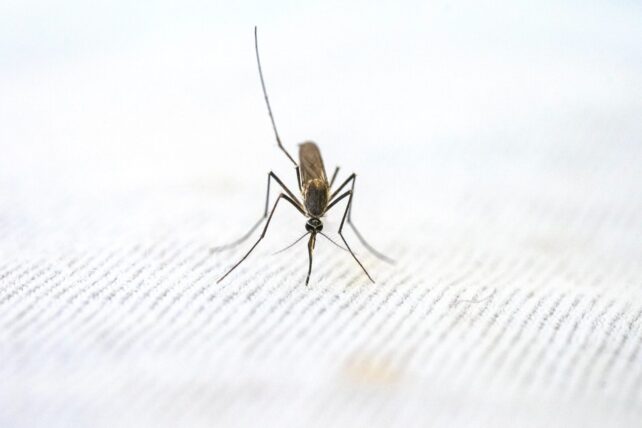
Last September, the Pan American Health Organization (PAHO) gave new impetus to an initiative to eliminate 30 communicable diseases and related conditions from the region of the Americas. Many are known foes, such as TB, HIV, and cervical cancer, but several are neglected diseases that affect vulnerable, marginalized or inaccessible communities. These diseases are mostly preventable, always treatable, and yet continue to plague millions.
Malaria, for example, is an illness that hides in the most difficult to access corners of the Americas. The disease is emblematic to many ailments under the PAHO initiative: a ramification of poverty and social inequity disproportionally impacting communities far away from health services.
While endemic in 84 countries globally, malaria transmission in our region is concentrated in remote, rainforest areas, such as the Amazon basin, hard-to-reach indigenous communities in Mesoamerica, and poverty-stricken areas in the island of Hispaniola. Geographically, these areas add up to less than a third of the continent, yet still represent 142 million people at risk.
Disconnected from national networks, health promotion campaigns, and hampered by physical or social barriers, these communities confront many diseases and conditions that better served populations rarely worry about, such as Chagas disease, trachoma or lymphatic filariasis. And as they get sick from these diseases, they also get poorer. They exhaust their daily subsistence traveling long distances to health centers, lose productivity and end up caught in a vicious circle. Eliminating these scourges would be a step towards bringing more prosperity to these communities.
On a macro level, it would also unburden already-strained healthcare budgets. The return for each dollar invested in TB diagnosis and treatment is estimated at US$ 40, while the worldwide socioeconomic benefit of eliminating neglected tropical diseases such as leprosy, leishmaniasis and Chagas disease could be as high as $16.6 billion for
2021-2030.
The good news is that our history proves disease elimination is possible. The Americas was the first region to wipe out polio in 1994, and we have since amassed several victories, including the elimination of measles, rubella, and neonatal tetanus.
Progress on malaria has also been encouraging. In the past five years alone, Paraguay, Argentina, El Salvador and Belize were certified malaria-free by the World Health Organization, and we currently have eight countries on a solid
path towards elimination by 2030.
These successes make the Americas the leading region in the global race against malaria and show us that we can do more. With the lessons from COVID-19 fresh on our minds, there is no better time than now to strive towards the elimination of communicable diseases.
Innovations can support our drive, building on what we learned in the past years. Geospatial technology, for example, can help map out pockets of transmission to plan targeted interventions. Telemedicine can bring care to remote locations, or to those that face social or economic hurdles. Improved rapid tests can facilitate screening and early detection, and now affordable medicines – such as for Hepatitis C – can widen access to the cure.
But beyond tools, new strategies can also help: with one dose instead of two of the human papillomavirus (HPV) vaccine, we can expand coverage to effectively eliminate the risk of cervical cancer in girls from our region but also vaccinate boys, who can contribute to transmission. By proactively seeking out TB cases and expanding preventive treatment in high-risk populations, such as in prisons, health systems can reduce incidence and death. Countries in the region had already committed to the PAHO elimination initiative in 2019, but COVID-19 delayed our resolve. Now is time to get back on track.
We have the means, and our challenge is to ensure that these are integrated into national health systems and reach the people that need them the most. PAHO stands ready to provide support. Our Regional Funds can help ensure vaccines, diagnostics, medicines, and emerging technologies are accessible at affordable prices. I am sure our collective effort will pay off. Eliminating diseases like malaria will save lives, prevent suffering and disability. It will also strengthen public health systems and help tackle deep-rooted socioeconomic inequities, ultimately benefiting all peoples of the Americas.

The focus is on the ‘rich’ getting richer. All these should by now be manageable if wealth was not taken from us and steered towards rich countries. Just research the WTO you’ll find their agreements skewed towards U.S, Canada, Germany, Britain etc who are allowed to subsidize their farmers, by WTO unfair agreements your leaders were coerced into signing – or face war.
They recently crippled Ghana from growing rice because Ghana was helping their farmers.
The WTO sent their agents to stop Ghana to adhere to their rules of you not subsidizing your farmers, as only U.S, Canada the West is allowed to. Ghana can’t even grow rice for local, they now import from Germany.
That’s exactly why you and the African continent can’t feed yourselves healthy. If allowed to, you’d have the ability to rid yourself of those diseases without risking vaccinations that have potential to prevent your young children from having offspring. Let’s not be lazy, do a little fact-finding, it’s serious!